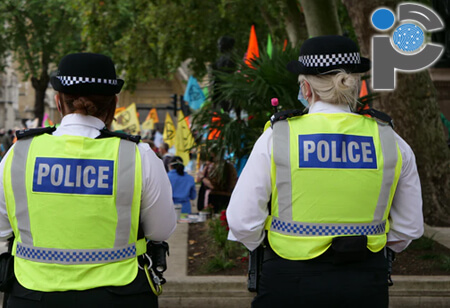10 Tips for Finding a Missing Person
September 13, 2021 - Reading time: 13 minutes
Updated on: August 1, 2025
When you discover that a friend or relative is definitely missing, there is no mistaking that feeling in the pit of your stomach. Then there are the questions running through your mind and the fears that you cannot dispel. When a person is missing, time is of the essence and it’s important to act quickly in order to maximize your chances of finding them.
That is why we offer you our top 10 tips for finding a missing person. You are best to work through this list methodically, starting with tip one:
1. Brainstorm and Make Notes
People don’t just vanish without a trace. Someone somewhere knows something. If you plan to get involved in finding a missing person, start by brainstorming.
Because there are countless reasons for somebody to go missing, you want to explore all possibilities as soon as possible. Then you can take into consideration all the information gathered together about the circumstances around the missing person being missing.
Think about, discuss and consider these likelihoods:
- Are they vulnerable in any way? For example, do they suffer from dementia?
- Theories regarding a possible accident
- Is there something in their life that may have overwhelmed them?
- Did they just need to get away from everything?
- Could they literally be lost?
- Maybe they are avoiding a conflict?
- Might they be avoiding a creditor?
- Have they committed or witnessed a crime?
- Might they have been abandoned?
- Could they be a victim of a domestic abduction?
- Are they wealthy? Could they have been abducted for ransom?
Create a note-taking facility and note down everything you find out, when you find out, record anything that might be useful in your notes.
2. Research Online
Due to the strength of the internet and the popularity of social media, you can explore their social media accounts for clues to the disappearance. There is also software that helps to explore data banks regarding individuals. You may discover contacts and connections via this method of exploration that no one knew about locally.

3. Look at Their Diary
Not in a nosy, snooping way. You are looking for clues, appointments, activities. Have a look to see if there are any pressing engagements over the next few days. Have a look for an appointment or meeting on the day they disappeared. There could be clues which might place their whereabouts.
4. Explore the Habits of the Missing Person
We are all governed by habit and routine. When someone breaks away from their usual habits, routines and in particular responsibilities that impact on the well being of another person or pet, then there is going to be a very good reason behind that. Explore the possibilities and examine why routines and habits have been broken.
5. Consider Suspects
Try and establish if they have any enemies, maybe they have witnessed a crime, perhaps they have been threatened, or something from their past has come back to haunt them.
Explore if they could have become involved in illegal drugs or otherwise had a run-in with a drug gang operating in the area.
6. Check Their Computer to Seek Recent Browser History
Sometimes people intentionally disappear. There could be a number of reasons why, but their browser history may give valuable clues if they have deliberately gone missing. They may have researched an area, looked up about identity change, explored transport costs, even bought tickets. There could be valuable clues from their online searches.
7. Liaise and Interview
You cannot beat feet on pavements, interviewing and liaising with other people. Begin with any one close to the missing person who was not at the brainstorming. Talk to neighbours, anyone from the household and people that they usually regularly see, for example, the local paper shop owner if they collect a daily paper. When a young person is missing, talking to their friends and peers is an essential method for gaining information. Have a parent, guardian or responsible adult with you when you interview children.
Make a note of everyone you speak to and note down the last time they saw or spoke to the missing person.
8. Have a Phone for Incoming Calls
Keep a phone free for incoming calls, ideally one that the missing person knows. That way, if they try and call, they are more likely to get through. It also keeps the number free for police to contact you, hospitals to get in touch, or anyone at all with sightings or possible sightings.

The easiest way is to plan to use a friend’s mobile phone for all outgoing calls. That way, you keep yours free for all incoming calls.
9. Plan for there to be Someone at the Home Address at All Times
In case they return home, try and make sure someone is there at all times. Set up a rota if necessary to make sure that someone is there twenty four hours a day, every day.
10. Posters and Social Media
When someone has been missing for a while, talk to the police or your private detective about putting up posters and putting out appeals on social media and other methods they might suggest you could use to generate publicity. You can make fliers and posters. Hand out fliers, put up posters and use them as attachments to social media posts.
The poster and fliers should have a clear up to date photo, the person's age, height, eye colour, what they were wearing when they disappeared. Include any distinguishing features and where and when they were last seen.
Put the posters up on routes they would normally take. Put them up in high foot traffic places where they will be seen by more people. Also, send some posters to other areas that they may have travelled to, such as holiday home location, favourite holiday locations in the UK and overseas.
Why do people go missing?
People go missing for a variety of reasons. Sometimes it’s the person themselves who does not want to be found. Sometimes they are victim to an accident, incident or situation beyond their control. It’s not unusual for there to be something in their life that has become difficult and they have been struggling. So the person has gone away for a while to think or to escape problems. Sometimes this disappearance could be intended to be permanent. At times the person missing could be suffering from some physical health or mental health issues. Both can cause confusion and erratic behaviour. Take into consideration if they are known to suffer any mental health issues. If so, then it's vital to consider their condition when contacting the hospitals and police and when you are working out what might have happened.
Whatever the reason, there are certain things you should do and a number of things you can do to find a missing person.
Follow this checklist before calling the police and hospitals:
- Check to see if they have left a note
- If they have one, check the whereabouts of their car
- Do a search of the location they were last seen or the home if they are missing from home
- Pay attention to cellars, loft space and sheds in case there has been an accident
- If the lost person is a child, remember that they can fit into small spaces
- If you are not their next of kin, talk to the next of kin to see if they know anything
- Talk to anyone who lives with them
- Check your phone and email for messages and leave them messages via text, voicemail and email
- Have a look for clues that they may have gone away, such as taking their passport, taken clothes, toothbrush and other items with them?
- Talk to neighbours, contact other friends or family
If all of the above doesn't shed any light, call local hospitals to check for admissions. If they have not been admitted anywhere, recheck your phone to see if they have tried to make contact. Make a note of when anyone last saw them and where that was. Explore if they have failed to complete any usual routines or done something out of character such as not arriving for work, or maybe left a child or pet alone. Have as much information as possible to hand. Then call the police to report the person as missing.
Maybe a child or teenager has run away after a falling out at home and they may have gone to a favourite camping spot, a friends house or somewhere else to hideout.

In the UK, the police are likely to ask you the following:
- Full name, date of birth of the person who is missing
- Request the address of the missing person and any other property such as a holiday home
- Request a recent photograph
- If they have a medical condition
- Next of kin information
- Details of friends or relatives
- Contact details for the person or people who last saw them
- Information about their routines and the places they often visit
- The police may request an item to obtain a DNA sample, such as a toothbrush or hairbrush.
The police will log the person as missing. Missing person details will be available to other UK police forces within 48 hours.
Depending on the circumstances, age and health of the missing person and the policies of the local police force, the police may or may not appear to do much to help find the missing person. If the person is an adult of working age and in good health, they will take and log all the information, make it available to other forces and retain it as an open case. However, they may not have the resources to do much more to help find the person who is missing. It is not illegal to go missing, and if there is no perceived crime or potential danger to health, most forces are not able to offer much help.
In conclusion
Searching for a missing person is never easy, whatever the circumstances. When you are close to the person and concerned for their welfare, you are stressed and emotional, not to mention tired out. Sooner or later, if they are not found quickly, you have to get back to your own daily life, work, family commitments and so on. After a while, friends and family may no longer want to commit to the house waiting rota. Keep in touch with the local police force. If there is a genuine possibility that the missing person may have travelled to another location, unless the police have done so already, contact the police force in that area and give them the crime reference number (CRN) that the local force has given you.
You are reading the PrivateInvestigators-UK blog — home to the UK's leading detective agency. Learn more about us by visiting our homepage PrivateInvestigators-UK.com.